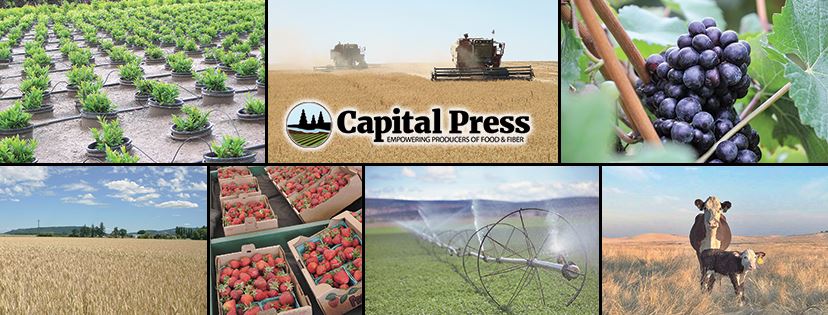“These broad brush strokes are not something our membership wants to see from the department,” Poor said.
The OWRD was originally set up to simply allocate and regulate water rights, but the agency must now find innovative ways to efficiently manage limited water more broadly, said Owens, the farmer and lawmaker. Agency officials have struggled with that challenge and tend to fall back on traditional regulatory approaches, so a longtime insider isn’t a “slam dunk” pick for setting a bold new agenda, Owens said. For example, OWRD is leaning toward enforcing water rights to mitigate groundwater depletion in the Harney basin rather than following community recommendations for voluntary curtailments, he said. “The OWRD is having a hard time figuring how to do something differently than they’ve done in the past,” Owens said. Late last year, Kotek’s office re-opened the application period for OWRD director because she wasn’t satisfied with the candidates for the position. The ultimate decision to pick Gall shouldn’t reflect badly on his qualifications, but rather demonstrates the limited number of qualified applications for such a specialized job, said Hall of the Water League. “They maybe have been looking for someone who just doesn’t exist,” he said. Environmental groups involved state water policy are more confident about Gall’s nomination than some in agriculture, citing his decades of on-the-ground work. “Ivan doesn’t just know the ropes. We agree with Governor Kotek that his expertise and track record demonstrate he’s ‘ready to take this charge head on,'” said Caylin Barter, water policy director at the Wild Salmon Center nonprofit, in an email. WaterWatch of Oregon, a nonprofit that closely tracks OWRD’s decisions and policies, also applauds the nomination due to Gall’s experience, said Kimberley Priestley, its senior policy analyst. “Ivan Gall is deeply familiar with the agency’s programs and authorities, knows how the many moving parts work together and has the technical skills and policy know-how to bring this agency into the 21st century,” she said in an email. This story originally appeared in the May 10, 2024, edition of the Capital Press.
Experienced Regulator Nominated as Oregon’s Top Water Official
By Mateusz Perkowski | May 10, 2024 | Capital Press Water advocates of all stripes agree Oregon Gov. Tina Kotek has nominated someone who knows the ropes to be the state’s top water official. Those hoping for fresh blood at the Oregon Water Resources Department, however, see her choice of a long-time employee, Ivan Gall, as uninspired. “I was hoping we’d bring in someone from outside to change the culture of the department,” said Rep. Mark Owens, R-Crane, an alfalfa farmer deeply involved in state water policy. After a quarter-century at OWRD, Gall isn’t anticipated to have much trouble finding his way around if he’s confirmed as its new director by the Senate later this month. “He can pretty much answer every question I have in great detail and that’s really impressive,” said Chris Hall, executive director of the Water League nonprofit, which advocates for civic engagement in water issues. Kotek’s decision to nominate a director from within OWRD signals she wants a “technocrat” with a “just the facts” approach to leadership, rather than a political wheeler-dealer, Hall said. In light of the “stewing cauldron” of water conflicts in the state, the agency needs a leader who’s ready to confront complex technical problems from the get-go, he said. “The knives are coming out across Oregon about water,” Hall said. “Livelihoods are at stake, so it’s really tense.” Starting in the late 1990s as a hydrogeologist, Gall worked his way up to become the head of OWRD’s groundwater section and then its field services division. He’s most recently served as the agency’s interim deputy director for nearly two years. “That is a level of experience an out-of-state candidate would not have had,” said April Snell, executive director of the Oregon Water Resources Congress, which represents irrigation districts. If he draws on that knowledge to effectively overhaul the agency, Gall will make a better leader than if he keeps OWRD on the same trajectory, she said. “I want to be hopeful this will lead to some much-needed changes,” Snell said. While Gall’s long history at OWRD is expected to slash the time he needs getting up to speed as chief, it’s not universally considered a positive attribute. The Oregon Farm Bureau is concerned his nomination “represents more status quo” when the agency should instead break with the past, said Lauren Poor, the group’s vice president of government and legal affairs. “That department is strongly in need of fresh perspective,” she said. “The last thing we want to see is no changes.” Despite a substantial funding boost in recent years, OWRD is still working through a lengthy backlog of water rights applications and will be seeking to drastically hike fees on water users, Poor said. Meanwhile, the agency isn’t fully taking agricultural concerns into account in policy decisions, such as its proposal to impose significantly higher hurdles for the drilling of new irrigation wells, she said.
